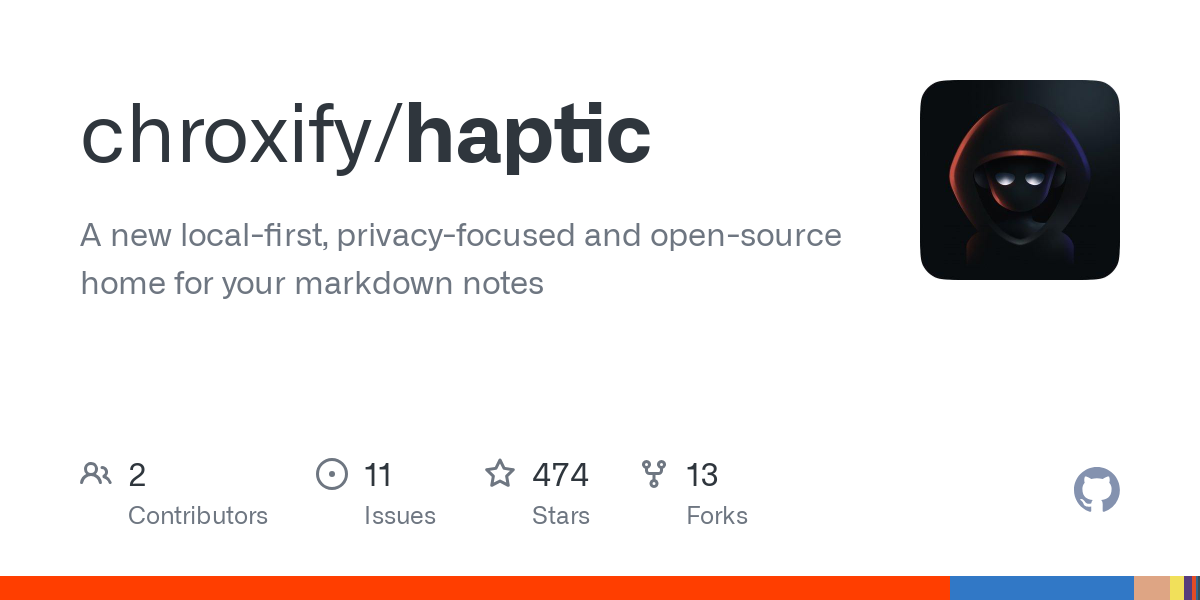This seems like a solid choice for those of use looking for a obsidian-like replacement. Personally tried all editors out there, but nothing is able to defeat my love for obsidian. However, i look forwards to trying out Haptic when it comes to Linux. Currently it only supports Web and Mac. But state Linux and Windows support is on-the-way.
Kudos to selfh.st that provides consistent updates within this community and who shared this among other cool projects this week -> https://selfh.st/newsletter/2024-09-06/?ref=this-week-in-self-hosted-newsletter



You need to list out your requirements. What do you want to do? Where do you need your data? Do you care about open source? Self-hosting? Do you have an idea how your content will be organized? Will you ever need to tap into it as data? Etc
I have notes fairly sporadically all over the place. Some for work for compartmentalised projects that I won’t need to see again once the project is done. Then for personal creative projects. Then for personal research projects. I like tracking data for sure. I’d prefer to have one central place for everything. I like things organised and get very into organisation but I’d love some kind of AI organisation element. Not sure either of these do that though. I do have my own server and like self hosting. I do care about foss but will sometimes choose a more appropriate tool over a foss one. I need the data on my phone and accessible either on a cloud or syncable or something. I’m currently dipping my toe into Obsidian with syncthing/Dropbox. I won’t pay for any monthly fees but don’t mind paying one off payments.
I think you should give Trilium(Next) Notes a try:
it has the hierarchical notes structure that you are familiar with in obsidian
it has better ways of keeping things organized (attributes can be values or references, can be shared and inherited, which provides a flexible framework for having notes “types” as templates that can be extended, e.g. people vs. colleagues, businesses vs. companies, etc)
it has the concept of note hoisting (which lets you focus on a note and its sub-notes, so other projects/spaces don’t come in the way of autocomplete and placing references), and workspaces that builds further on top of that
it can be used standalone (local client/offline-only, like obsidian) but coupling it with a remote-server opens more interesting use-cases (synching, sharing notes with others by public URLs, one-user/multi-client editing) which gives the best of both worlds (local-first/online-first) and lets you access your personal notes on devices you don’t necessarily own (which obsidian doesn’t). The mobile app story isn’t great (it’s a PWA with limited offline capabilities at the moment), but isn’t worse than the alternatives either (I can’t really work and think long form on a handheld, no matter the editor experience, but perhaps that’s just me).
Iiiinteresting, I’ll give it a spin, thank you for the recco!